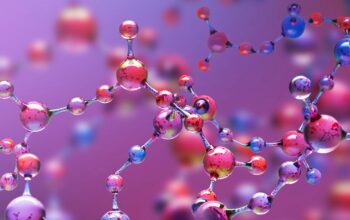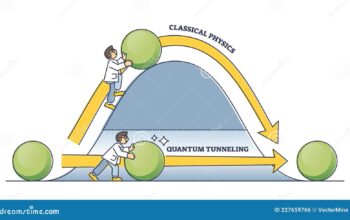In recent decades, the field of chemistry has undergone a remarkable transformation, not merely in its applications but in its fundamental understanding and methodologies. The evolution of this discipline is becoming increasingly intricate and nuanced, revealing the intersection of traditional concepts with modern challenges. The contemporary landscape of chemistry is driven by several significant advancements, including a deeper comprehension of molecular interactions, the advent of green chemistry, and the integration of technology and computational methods.
One of the most notable developments in chemistry is the profound insight into molecular structure and behavior. The exploration of intermolecular forces and their implications has expanded the horizons of chemists. Concepts such as hydrogen bonding, van der Waals forces, and ionic interactions have taken center stage. The intricate dance of atoms within molecules is no longer perceived as a mere mechanical process; rather, it is appreciated as a complex tapestry of energies and forces. Such understanding has catalyzed breakthroughs in various sectors, including pharmaceuticals, materials science, and nanotechnology.
The pharmaceutical field exemplifies how advancements in our comprehension of molecular interactions have revolutionized drug development. The process of rational drug design, which employs computational chemistry to predict how potential drug molecules will interact with biological targets, illustrates this paradigm shift. By leveraging molecular dynamics simulations and quantum mechanical calculations, researchers can optimize drug candidates before they ever undergo empirical testing. This approach not only expedites the drug development process but also significantly reduces costs and resources expended throughout traditional trial-and-error methods.
In conjunction with these advancements, the field of chemistry is witnessing an increasing emphasis on sustainability and environmental stewardship. The principles of green chemistry, which advocate for the design of chemical products and processes that minimize hazardous substances, have permeated various sectors. This paradigm shift prioritizes eco-friendly practices, promoting the use of renewable resources and energy-efficient reactions while minimizing waste and environmental impact.
Consider the development of renewable energy technologies, which highlight the practical application of green chemistry principles. Chemists are at the forefront of creating efficient solar cells that convert sunlight into electricity. Advances in organic photovoltaics and perovskite solar cells illustrate how chemical synthesis can enhance energy efficiency while reducing reliance on fossil fuels. Such innovations exemplify how chemistry is not merely a science of substances but a vital contributor to the quest for sustainable solutions to global challenges.
The integration of technology into the fabric of chemical research has also propelled the field into a new era of discovery. Automation and robotics have found their place in laboratories, streamlining experimental processes and enhancing reproducibility. High-throughput screening enables the rapid evaluation of numerous compounds, optimizing conditions and accelerating the pace of innovation. This shift towards automated experimentation is akin to the advancements seen in computer science, showcasing how interdisciplinary collaboration can yield transformative results.
Moreover, the burgeoning field of synthetic biology is a testament to the capabilities of contemporary chemistry. By merging principles from chemistry, biology, and engineering, synthetic biologists can design and construct new biological parts, devices, and systems. This innovative overlap not only advances our understanding of biological processes but also is poised to revolutionize fields such as agriculture, energy production, and healthcare. The synthesis of synthetic organisms, tailored to produce valuable compounds or biofuels, is arguably one of the most profound impacts chemistry has made in recent times.
Despite the numerous advancements, the field of chemistry faces significant ethical and societal challenges. The production and use of certain chemicals have led to adverse environmental impacts, necessitating a critical examination of chemical practices. Issues such as plastic pollution, pesticide use, and greenhouse gas emissions underscore the responsibility chemists hold in addressing these global crises. As such, a growing awareness of ethical considerations within the chemical community is essential. Chemists are now urged to employ their expertise not only to advance scientific knowledge but also to ensure that their work contributes positively to society and the environment.
Furthermore, the complexities of chemical research necessitate a more holistic approach to education and collaboration. A comprehensive understanding of chemistry now requires fluency in interdisciplinary fields such as material science, bioengineering, and informatics. As the boundaries of chemistry continue to expand, fostering collaborative research efforts among diverse scientific disciplines is imperative. Such multidisciplinary partnerships will harness the strengths of each field, driving innovation and addressing multifaceted challenges that humanity faces.
In conclusion, the stage at which chemistry currently resides is marked by remarkable advancements that transcend traditional paradigms. A profound comprehension of molecular interactions, a commitment to green chemistry, the integration of technological innovations, and ethical considerations collectively shape the modern landscape of this vital discipline. As chemists continue to explore uncharted territories, the potential for groundbreaking discoveries remains boundless. The journey of chemistry is far from complete; instead, it is a continuous evolution, revealing the intricate beauty of matter and its transformative capabilities. The fascination with this field persists, driven by the quest for knowledge and the desire to address the pressing issues of our time, ultimately shaping the world we inhabit.












